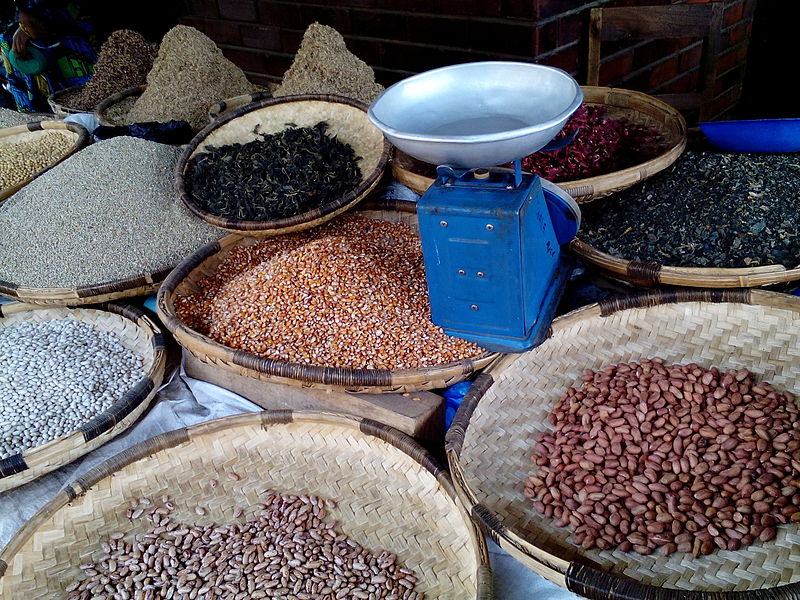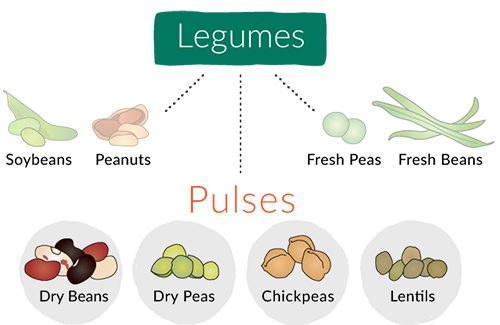World Pulses Day
 Every year on February 10th, World Pulses Day celebrates the dry edible seeds of plants called pulses (chickpeas, dry beans, lentils, dry peas and lupins among others). It is a global event designated by the United Nations in 2018 to recognise the significance of pulses as a global food.
Every year on February 10th, World Pulses Day celebrates the dry edible seeds of plants called pulses (chickpeas, dry beans, lentils, dry peas and lupins among others). It is a global event designated by the United Nations in 2018 to recognise the significance of pulses as a global food.
Why pulses?
Pulses are packed with nutrients and have a high protein content, making them an ideal source of protein particularly in regions where meat and dairy are not accessible for geographical or economic reasons.
In terms of food security, pulses are an important crop because farmers can both sell them and consume them, which helps them maintain household food security and creates economic stability.
The nitrogen-fixing properties of pulses improve soil fertility, which increases and extends the productivity of the farmland. By using pulses for intercropping and cover crops, farmers can also promote farm biodiversity and soil biodiversity, while keeping harmful pests and diseases at bay.
When pulses are grown, they use 1/2 to 1/10 the water of other sources of protein. Many pulse crops are adapted to dry environments, making them well-suited for areas that are prone to drought.
(Source: United Nations - World Pulses Day)
Selected publications
Indigenous African orphan legumes : potential for food and nutrition security in SSA / Michael Abberton [and five others].
In: Frontiers in sustainable food systems ; 6
https://doi.org/10.3389/fsufs.2022.708124
The authentic African chickpea cookbook : exotic taste of healthy food : tasty and little used recipes for beginners and advanced and any diet / Paul Kadjo. - Wilmington, DE : Mindful Publishing, [2021]
La recherche scientifique et progression de la culture du Niébé au Burkina Faso (1970-2020) / Dieudonné Ilboudo; Benoît Joseph Batieno, Benoît Joseph; Jean Baptiste Tignegre. - Paris : L'Harmattan, 2020
The global economy of pulses / Vikas Rawal; Dorian Kalamvrezos Navarro. - Rome : Food and Agriculture Organization of the United Nations, 2019
https://www.fao.org/3/i7108en/i7108en.pdf
Harvesting nutrition : grain legumes and nutritious diets in sub-Saharan Africa / Ilse de Jager. - Wageningen : Wageningen University, 2019
The role of legumes in the sustainable intensification of African smallholder agriculture: Lessons learnt and challenges for the future / B. Vanlauwe; M. Hungria; F. Kanampiu; K.E. Giller.
In: Agriculture, ecosystems & environment, 2019, Vol.284, p.106583-106583
Prospect for increasing grain legume crop production in East Africa / Marloes P. van Loon [and seven others].
In: European journal of agronomy, 2018, Vol.101, p.140-148
Pulse crops for sustainable farms in sub-Saharan Africa / Sieglinde S. Snapp; Maryam Rahmanian, Maryam; Caterina Batello; Teodardo Calles. - Rome : Food and Agriculture Organization of the United Nations, 2018
Promoting regional trade in pulses in the Horn of Africa / Suffyan Koroma [and four others]. - Accra: Food and agriculture organization of the United Nations, 2016
See also pulses.org's collection of pulse recipies.
N2 Africa and the role of legumes in developing world agriculture
Presentation by Ken Giller, Nitrogen: At the Nexus Between Food Security and Sustainability. A Virtual Symposium, 2017

